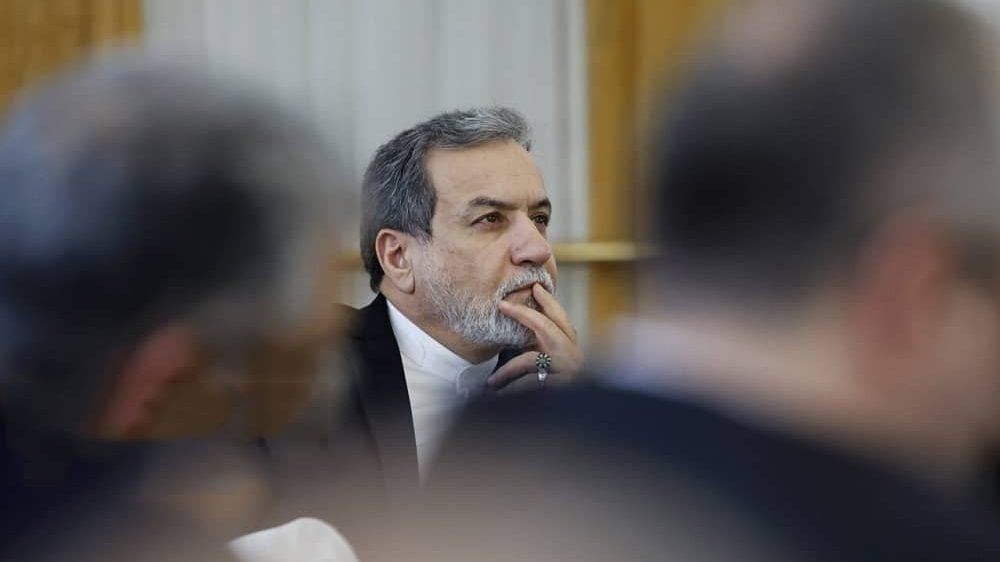Facebook
Twitter
LinkedIn
Pinterest
Reddit
Email
Print
 Iranian regime’s Foreign Minister Abbas Araghchi
Iranian regime’s Foreign Minister Abbas Araghchi
Two-minute read
The regime’s nuclear policy has ignited a storm of internal conflict, as extremist lawmakers, clerics, and regime-aligned institutions turn on Foreign Minister Abbas Araghchi over his recent deal with the International Atomic Energy Agency (IAEA). Threats of impeachment, calls for NPT withdrawal, and even open advocacy of building a nuclear bomb expose the depth of factional rivalries and the contradictions at the heart of Tehran’s nuclear strategy.
Parliament Threats Against Araghchi
On September 12, 2025, Kamran Ghazanfari, an IRGC-linked MP, openly threatened to impeach Araghchi unless he repudiated remarks by IAEA chief Rafael Grossi and disclosed the Cairo agreement text. Mohammadreza Mohseni-Sani, another lawmaker, went further, declaring Grossi and IAEA inspectors had “no right” to enter Iran unless Europe first paid reparations for the Iran-Iraq war. He warned that if Europeans activated the “snapback” sanctions mechanism, parliament would push for Iran’s withdrawal from the Nuclear Non-Proliferation Treaty (NPT).
Seventy-one lawmakers simultaneously demanded an emergency session with Araghchi and the Supreme National Security Council, citing concerns about concessions that might endanger nuclear scientists or restrict “Iran’s rights.” IRGC-linked outlets such as Fars, Tasnim, and Kayhan portrayed this as “revolutionary oversight,” while revisionist-leaning media downplayed it, insisting Speaker Mohammad Bagher Qalibaf was already informed.
The “Basij of Professors” escalated the campaign, rejecting any suspension of enrichment, direct talks with the United States, or expanded IAEA oversight. Their statements accused advocates of such moves of undermining the Supreme Leader and the armed forces, showing how regime-controlled organizations are mobilized as political shock troops in the nuclear dispute.
#Tehran’s Nuclear Standoff Deepens as Regime Faces International Rejection and Domestic Discordhttps://t.co/gbCnug4tZe
— NCRI-FAC (@iran_policy) September 11, 2025
Extremist Rhetoric Escalates
Araghchi attempted damage control on September 11, insisting the Cairo deal was only a “framework” and that no inspections were currently allowed without parliamentary and national security approval. Yet his reassurances were contradicted by Ali Larijani, secretary of the Supreme National Security Council, who accused Grossi of handing “a blank check to the enemy” and said the IAEA had “never been in such a destructive state.”
Factions aligned with the regime’s Supreme Leader Ali Khamenei sharpened their attacks, branding Grossi a “Mossad agent” and threatening to arrest him if he entered Iran. Kayhan editor Hossein Shariatmadari claimed a draft law for urgent NPT withdrawal was ready. Most strikingly, MP Bakhshayesh openly argued that Iran “should have built the bomb long ago,” confirming that nuclear weapons remain an ambition for parts of the regime.
The spectacle of parliamentarians threatening their own foreign minister, clerics denouncing international inspectors as spies, and MPs calling for nuclear weapons underscores a broader truth: Tehran’s nuclear program is less about technical policy than about factional survival. Instead of addressing international concerns, the regime is locked in a destructive contest where brinkmanship and secrecy fuel both internal rivalries and external pressure.